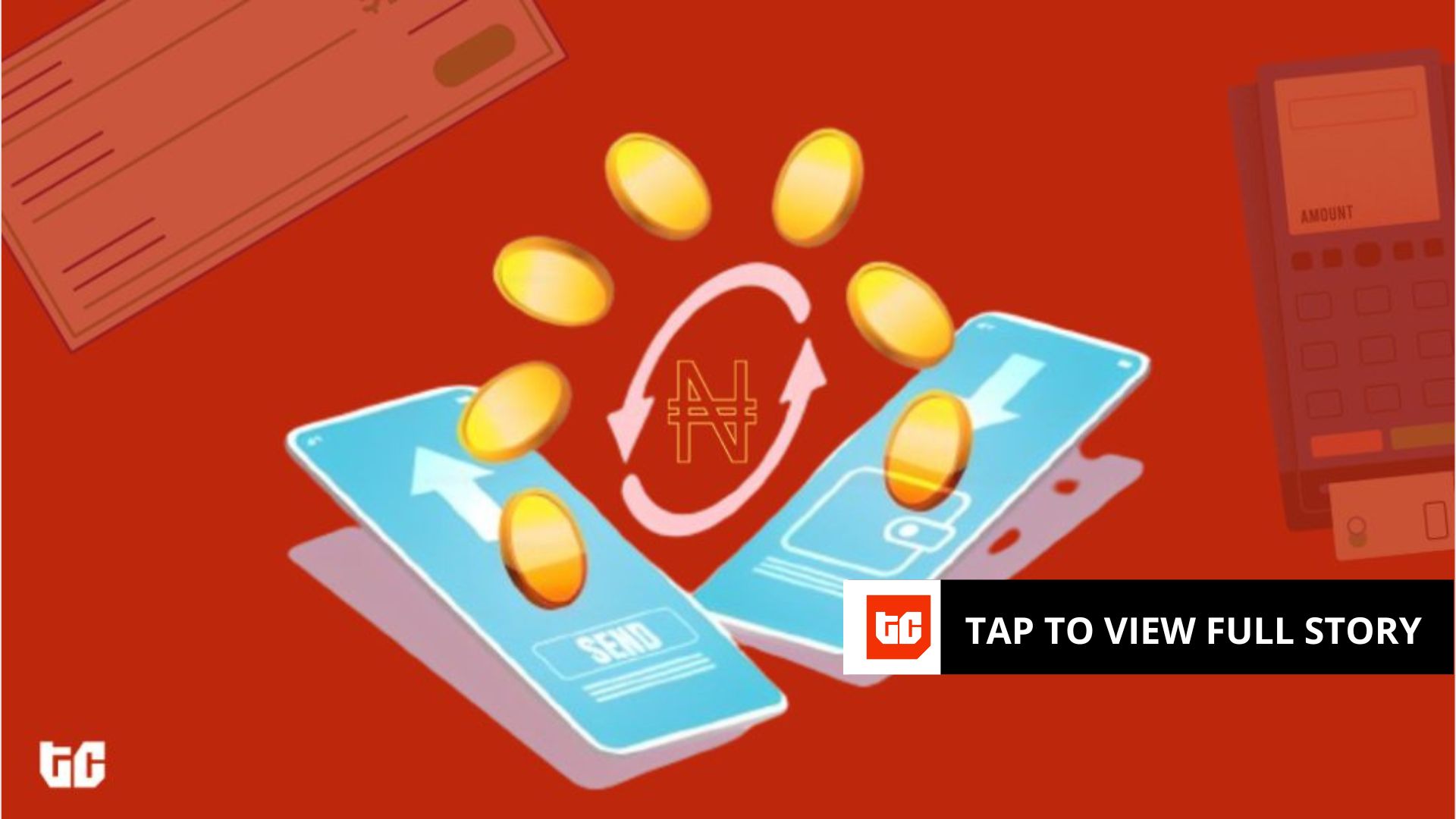From zero to $10 billion annual transactions: How Jiji became one of Nigeria’s e-commerce leaders
"We have grown to have over 6 million active listings with a combined estimated value exceeding $10 billion. Jiji currently drives annual transaction volumes in the range of $10-20 billion."

When Jiji launched in 2014, it entered a competitive e-commerce market in Nigeria, joining the likes of Konga, Jumia, and OLX, which had a two-year head start. But Jiji soon positioned itself as a serious market player. It started by offering free listings for first-time users and partnered with phone manufacturers to ensure its app came preinstalled on affordable smartphones. In 2016, it inked a partnership with Airtel allowing users to access the platform without using mobile data.
Jiji’s ambitions grew beyond Nigeria. In 2019, it acquired OLX Africa and took over its operations in Nigeria, Kenya, Ghana, Uganda, and Tanzania. This move helped JIji reach 300 million people across five countries, firmly establishing the company as a major online marketplace in Africa’s e-commerce space with a string of strategic acquisitions.
In 2021, Jiji acquired Cars45, a platform that buys, sells, and trades used cars in Nigeria, Kenya, and Ghana. In 2022, the company acquired Tonaton, its main competitor in Ghana.
TechCabal spoke to Anton Volianskyi, Jiji’s co-founder and CEO about the company’s journey and the challenges of scaling in different markets.
This interview has been edited for length and clarity.
TC: What problem did Jiji aim to solve in Nigeria’s e-commerce market, and how did this shape the platform’s early offerings?
We identified a need for a platform where people could connect directly to buy and sell everything, from products to services. At the time, the market faced pressing issues around accessibility, affordability, and trust, with scams creating distrust in online transactions. To address this, we built Jiji to minimise the risks by facilitating direct transactions with no intermediaries.
Our early offerings were shaped with this mission in mind: free listings, rigorous ad moderation, an AI-based security system, and an integrated chat feature enabling users to interact directly with sellers, all of which enhanced safety and user confidence on the platform.
TC: What strategies and localised features contributed to Jiji’s growth and user adoption in Nigeria?
We introduced free listings for first-time sellers, localised content in languages like Hausa, and search filters tailored to Nigerian shopping habits. Partnering with phone manufacturers, we partnered with phone manufacturers to provide affordable Android phones preinstalled with the Jiji app, eliminating the need for downloads. Optimised for low-data usage, Jiji ensures accessibility for users across diverse demographics.
TC: What key challenges did Jiji face while scaling, and what measures were taken to overcome them?
One of the major issues was preventing scams on the platform. To address this, we invested heavily in AI-driven tools that detect and prevent fraudulent activity, instantly blocking suspicious users. Another challenge was stiff competition from global players like Ringier and OLX (Naspers) who had huge budgets. Unlike our competitors, we focused on cost-effective performance marketing and meticulously analysed the return on every dollar spent. This approach enabled us to compete favourably and helped us achieve market leadership while staying financially agile.
The COVID-19 pandemic also presented unforeseen hurdles. We had to rapidly reorganise our business to adapt to new market demands. Although the first quarter was challenging, the surge in online trading during the pandemic eventually sped up our growth.
Finally, the naira devaluation had us rethinking and restructuring our financial strategy to align with new economic realities. Our commitment to cost-efficiency helped us avoid large-scale layoffs, further making Jiji a resilient and resourceful market leader.
TC: With the acquisitions of Cars45 and Tonaton, how has Jiji integrated these businesses and what unique value have they added to the platform?
Cars45 and Tonaton have complemented Jiji’s growth and diversified our offerings. For instance, Cars45 has helped simplify automotive transactions. For our buying customers, they can browse a wide selection of vehicles, access detailed inspection reports covering over 200 checkpoints, and schedule physical inspections.
For selling customers, we can now provide a platform that offers insights into potential selling prices backed by over 8 years of market data. Sellers can book appointments at any of our 70+ experience centres for quick, efficient inspections and sales. Dealers benefit from an online onboarding process, complete with free product training.
Tonaton, on the other hand, has reinforced our foothold in Ghana, helped to expand our user base and consolidated our market position. With Tonaton and Cars45 under Jiji’s umbrella, we are getting closer to becoming a regional leader in classifieds. These acquisitions have enriched our marketplace by providing niche expertise and extending our service range.
TC: How does Jiji ensure operational efficiency across logistics, payments, and customer support in its various markets?
We achieve operational efficiency at Jiji by leveraging technology and a customer-led approach. While Jiji doesn’t handle logistics or payment services directly, we empower buyers and sellers to connect and manage transactions independently. This way, we ensure a flexible and user-driven marketplace experience for our users. We also have a customer support system, which includes managers who are just a call away, an AI chatbot system, and a support team ready to assist both buyers and sellers across our markets.
TC: How is Jiji’s platform monetised across different regions, and have recent acquisitions and job listings diversified its revenue streams?
Jiji has a couple of revenue streams that support our growth across markets. Primarily, sellers pay for Premium Services, which allow them to have more listings and reach more clients, resulting in more leads and sales. We also tap into additional digital advertising income by generating ad revenue from Google through banner ads.
Recent acquisitions, such as Cars45, have diversified Jiji’s revenue streams even further. Through Cars45, we facilitate verified car sales and optimise our automotive offerings while adding another revenue channel.
TC: What systems and processes are in place to maintain quality control and ensure a safe experience for users?
We prioritise quality control and user safety. We have moderation teams localised across our markets. They review ads and ensure compliance with our policies, and those of our host countries. Additionally, through our security systems, our AI-driven algorithms detect and flag suspicious activity on the platform, automatically blocking erring users. We also offer safety tips on our website and other verified official communication channels. This rigorous approach has helped build trust amongst our users and reduce fraud incidents to below 1%.
TC: Can you share insights into Jiji’s growth metrics and financial outlook, including its profitability?
Starting in 2014 when our Director of African Operations, Yuliy Shenfeld, visited Nigeria to hire our first staff, our growth has been remarkable ever since. We have expanded to have a staff base of over 1000 members. In 2023, Jiji attracted 65 million unique visitors, meaning that every fourth internet user in our markets engaged with our services. We have grown to have over 6 million active listings with a combined estimated value exceeding $10 billion. Jiji currently drives annual transaction volumes in the range of $10-20 billion.
We have also expanded to 8 African countries, supported by a team of 1,000+ dedicated members. Jiji now serves over 200,000 active sellers and SMEs, showcasing the wide appeal of our offerings. Our platform is highly rated on the Play Market with more than 200,000 reviews across our countries, averaging 4.7 stars in Nigeria, and welcomes over 12 million unique visitors monthly.
TC: What are Jiji’s plans for future expansion within Nigeria and other African countries?
We are currently present across 8 countries – Nigeria, Ghana, Kenya, Uganda, Tanzania, Ethiopia, Senegal, and Côte d’Ivoire. We recently launched Premium Services in Ethiopia. In terms of regional expansion, we’re exploring further growth in East and West Africa while also being committed to deepening our presence in Nigeria.
TC: Given that Jiji is ranked as the 42nd most-visited site in Nigeria, how does it plan to maintain or even improve its standing amid growing competition in e-commerce and classifieds?
To maintain our standing, we’re focusing on improving user experience on the platform. We will keep exploring partnerships to meet the ever-changing needs of our users and provide localised solutions, features, and promotional tools to help businesses grow. We aim to keep pace with user expectations.
What's Your Reaction?


















